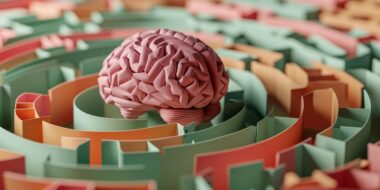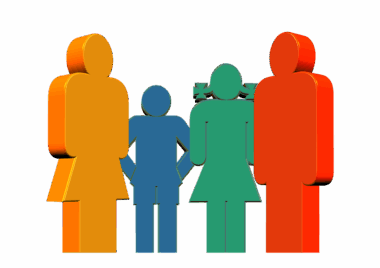Impact of Social Media on Eating Disorder Risk
Social media plays a significant role in shaping individuals’ perceptions, especially among young people. Research indicates that platforms like Instagram, Snapchat, and TikTok contribute to heightened feelings of inadequacy. Constant exposure to curated images can lead to unrealistic beauty standards, creating dissatisfaction with one’s body image. Furthermore, users often compare themselves to influencers and followers, which can exacerbate feelings of worthlessness. Social media algorithms frequently prioritize content that showcases edited and filtered images, resulting in a skewed perception of reality. Such exposure not only encourages unhealthy eating habits but can also trigger or worsen existing eating disorders. It’s crucial to understand that while social media can foster communities, it can equally promote harmful behaviors. Frequent engagement with such content may lead to an increased risk of disorders like anorexia and bulimia. Additionally, peer pressure and the desire for social acceptance contribute to the normalization of unhealthy body ideals. Consequently, becoming aware of these influences is essential for fostering a healthier self-image and promoting body positivity among individuals navigating the impact of social media on their self-worth.
Alongside the visual pressures posed by social media, the content shared can intensify feelings of stress and anxiety. Social platforms often serve as a breeding ground for negative comments and comparisons among peers. For many young users, the expectation to be perfect leads to an unhealthy obsession with diet and fitness trends. Influencers frequently promote products that promise quick weight loss or instant results, which can mislead followers. Such endorsements typically lack scientific backing, further perpetuating dangerous misinformation. Participation in
Social Media Trends and Body Image
body positivity movements can also be overshadowed by the obsession with perfection. Users may struggle to reconcile their everyday lives with the seemingly flawless existences depicted online. This disconnect can lead to significant declines in mental health, as users feel unable to meet such unattainable standards. Additionally, the rise of “fitspiration” or “thinspiration” accounts can push individuals toward unhealthy behaviors. For many, viewing these accounts leads to an unhealthy fixation on body size rather than health. These trends not only promote distorted ideals but can also encourage the development of harmful practices such as extreme dieting or excessive exercising. Moreover, the anonymity of social media allows bullying and body shaming to flourish, where individuals may face harsh criticism about their appearance. The resultant emotional distress can further entrench the cycle of negative self-image and eating disorders. In essence, social media’s influence cuts both ways; while it can draw attention to necessary conversations about body image and health, it equally serves to amplify harmful narratives that jeopardize individuals’ well-being.
Another critical aspect of social media’s impact is the culture of instant gratification associated with ‘likes’ and validation. Users often gauge their self-worth based on the number of interactions they receive on their posts. This constant need for approval may paradoxically lead to feelings of disappointment and anxiety when their expectations are not met. The illusion that popularity on social media equates to success or beauty exacerbates internal struggles with body image. Adolescents and young adults may find themselves entrenched in a cycle of posting and deleting images based on feedback from followers. Some might even resort to drastic measures to attain the desired look, such as extreme dieting or cosmetic procedures. Social media platforms encourage this behavior by continuously promoting content that glorifies specific body types. Therefore, individuals trapped in this cycle can find it challenging to break free and adopt healthier habits. Understanding the undercurrents of validation on social media is essential for mitigating the adverse effects and promoting self-compassion among users navigating these platforms. Encouraging authenticity and openness can help shift the narrative towards a healthier body image.
The Role of Community and Support
Despite the potential risks, social media also offers unique opportunities for support and community building. Many individuals with eating disorders find solace in online support groups where they can share their experiences and recovery journeys. This digital camaraderie can foster resilience and hope, critical components for recovery from eating disorders. Well-moderated forums and communities promote body positivity and encourage users to challenge unrealistic standards. They offer valuable resources, such as articles on healthy eating and mental health strategies, supporting individuals in their recovery. Furthermore, social media platforms have become outlets for advocacy, where users can share messages about body acceptance and the dangers of dieting culture. Influencers advocating for mental health awareness can use their platforms to inspire change and promote healthier narratives. Yet, it remains paramount for users to discern between supportive communities and harmful content. Finding the right balance allows individuals to utilize the positive aspects of social media while shielding themselves from the toxic influences that proliferate online. By participating actively in constructive discussions, users can help pave the way for a more supportive online environment.
Furthermore, educational initiatives on social media have gained traction, aiming to inform users about the risks associated with unrealistic expectations. Campaigns promoting media literacy and critical thinking empower users to question the content they consume. Understanding that social media often showcases edited and curated lives can foster a more objective view of reality. Educators and mental health professionals have begun collaborating with platforms to create content that emphasizes healthy body image and self-acceptance. With increased awareness, users can also adopt healthier relationships with their bodies and the media they engage with. Conclusively, while the potential for risk is prevalent within social media interactions, opportunities for education and relationship building remain viable. Encouraging a culture of informed consumption and self-care is essential for long-term well-being. By sharing knowledge and generating awareness, individuals can contribute to a healthier community that prioritizes mental health and body positivity. Inhabitants of social media can harness its power for good, improving their experiences and relationships with themselves and others.
Conclusion: Moving Forward
Raising awareness about the influence of social media on eating disorders is crucial in today’s digital age. By acknowledging both the harmful and beneficial effects, we can equip individuals with the tools they need to navigate these platforms. Promoting healthy self-images and building supportive communities must remain at the forefront of discussions concerning body standards. Collaborative efforts between users, influencers, and mental health advocates can create a dialogue that advocates for change. Furthermore, encouraging content that focuses on diverse body types rather than one ideal can help broaden societal acceptance of varying beauty. Continually discussing these topics leads to a deeper understanding of the complex relationship between social media and mental health. Addressing the increasing prevalence of eating disorders necessitates collective vigilance. A multifaceted approach that emphasizes education, advocacy, and community support will ultimately lead to greater awareness and healing. By striving for a healthy balance in social media interactions and fostering positive dialogues, we can inspire future generations toward more supportive and informed experiences online, ultimately reducing the risk of eating disorders.
To conclude, the ever-evolving landscape of social media plays a pivotal role in the dialogue surrounding eating disorders. Active engagement with harmful content, when coupled with societal pressures, can precipitate lasting impacts on mental health and body image perception. Therefore, awareness is paramount to recognizing the intricacies of this relationship. Young individuals must be equipped with the knowledge to decipher the influences they encounter on these platforms. Daily interactions with social media may shape and define their self-image and mental well-being. Encouragement of critical discussions concerning media portrayals can ignite transformative change, paving the way for a happier and healthier relationship with one’s body and mind. Future engagement should aim to continuously inspire positivity and authenticity within online discussions. By nurturing these principles, users can help propel change that embraces diversity and fosters body acceptance among peers. It fosters a nurturing environment where individuals can thrive through shared experiences, mutual encouragement, and long-lasting support systems. Ultimately, understanding and addressing this complex interaction is necessary for effective awareness and prevention of eating disorders in modern society.





